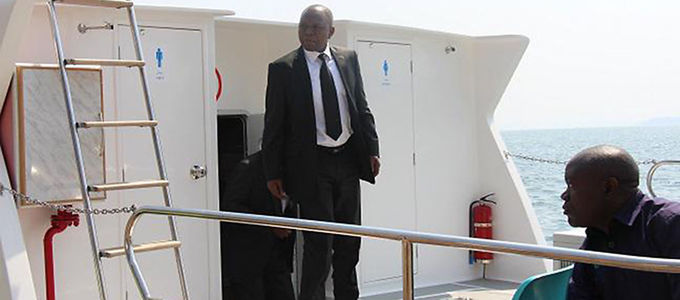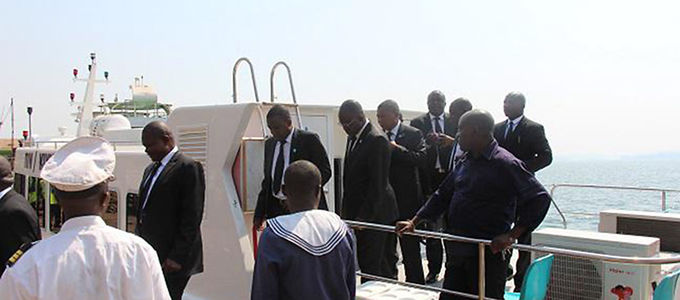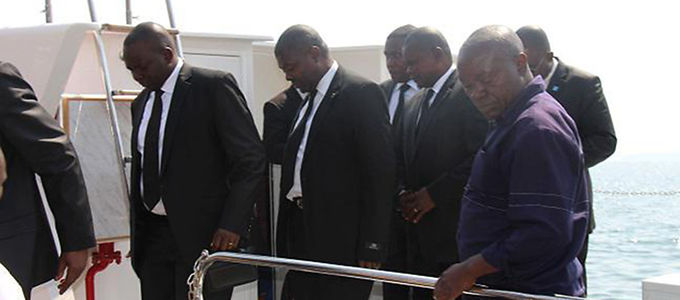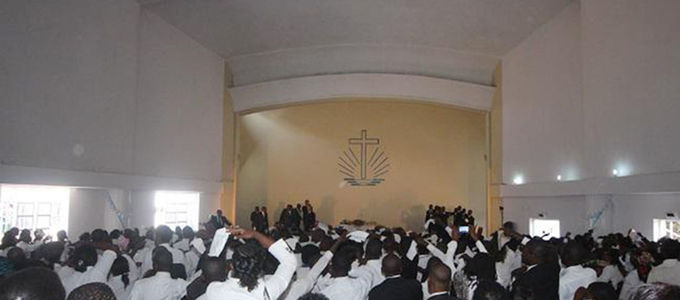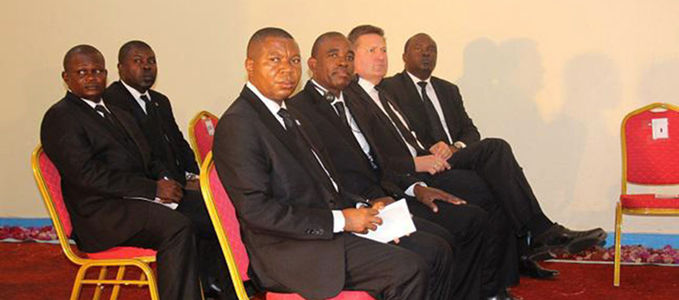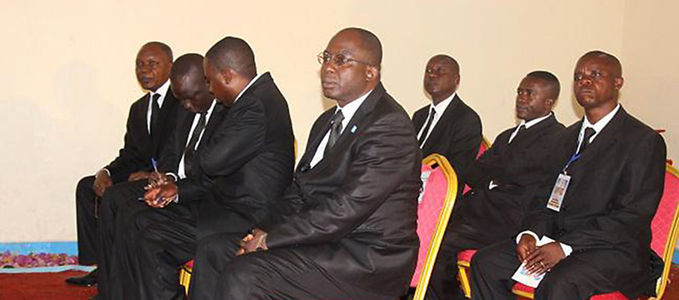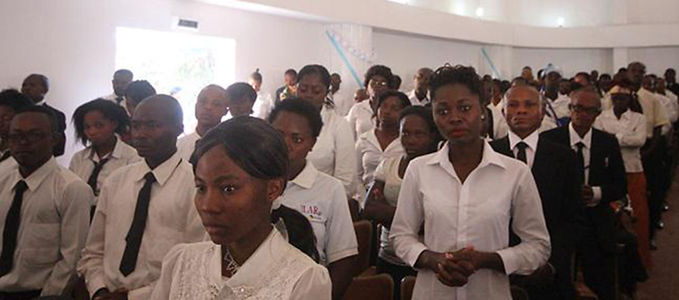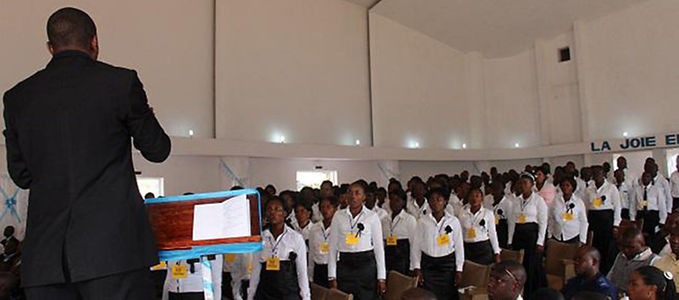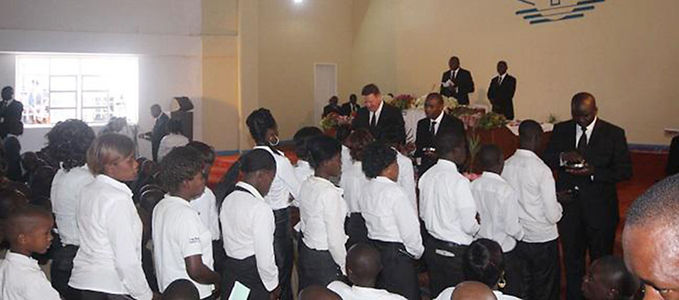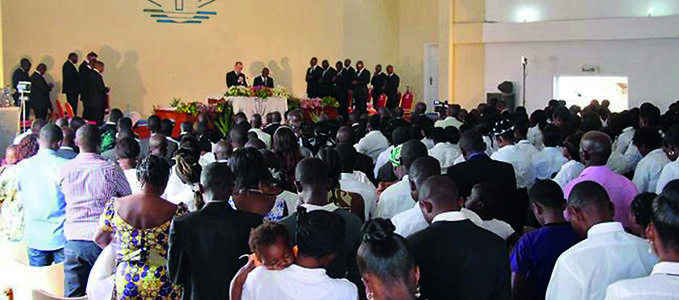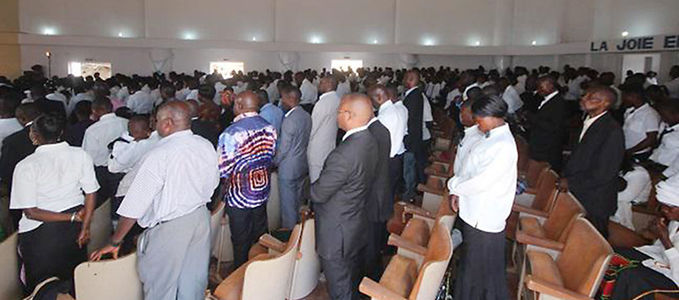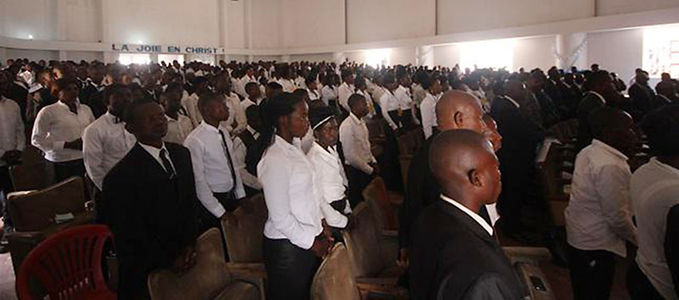Experiencing the glory of God already now
Seeing the glory of God is something that is usually only possible in retrospect in this life. Yet there are many possibilities to experience the nearness of God. This was a topic in a recent divine service by the Chief Apostle.
Chief Apostle Jean-Luc Schneider took a speed boat across Lake Kivu to Bukavu (Democratic Republic of the Congo) to conduct a divine service there on 13 July 2015. More than 2,000 brothers and sisters had gathered to hear him. He ministered in French and was interpreted into Swahili. The service was based on Exodus 33: 18, “And he said, ‘Please, show me Your glory.’”
Moses and the presence of God
Following is some background on the Bible text: Moses gave up a lot to follow God’s call and lead the people of Israel out of Egypt. And when the people turned away from God and started to worship the golden calf, he was very disappointed and asked God to please show him His glory.
But God told him that no man can see His face and live. Instead God told Moses to come closer and stand on a rock, where He would pass by him so that he could experience God’s glory in passing. Then God proclaimed His goodness, His love, His grace, and His faithfulness, and finally gave Moses His laws and commandments.
Faith precedes experiences
Also “we have given up many things in our lives for the Lord Jesus”, the Chief Apostle said, referring to the parallels in the life Moses. “But from time to time, we experience the power of evil. Then we are discouraged and turn to God for comfort.” Here too God’s invitation to draw close to Him applies.
“To draw near to God means to come to God in faith.” Many people have the following expectations when it comes to God: “Show Yourself, I want to see you, and then I will believe in You. But that is not how it works. If we want to see God we will have to believe first.”
Encounters in divine service
If we want to see God, the Chief Apostle said, we also have to go to the place where He reveals Himself. “When you come in faith to the divine services and under the word of the Apostles, you will be able to meet God,” Chief Apostle Schneider added. “And what happens in the divine service?” he asked, before listing four points in response.
- God proclaims His goodness. “Jesus did not come to punish sinners. Jesus came to save sinners. He wants all of mankind to be saved.”
- God proclaims His love. “In every divine service, we can celebrate Holy Communion. Jesus draws near to us and says, ‘Listen, believe Me: I love you. I died for you.’”
- God also tells us that He is faithful. “He reminds us that Jesus loves us and that this love will not change even if we have committed the greatest sin.”
- God speaks to us about His grace. “He reminds us that He offers us eternal fellowship with Him. This is something that I will never deserve. He knows that and that is why He wants to give us something we do not deserve: His grace.”
And only then comes the law, just like at the time of Moses. “The sequence is important,” the Chief Apostle said. “God wanted to show that His law is an expression of His love.” For “His law is not meant to subjugate us, to enslave us. God’s commandments will preserve us from harm.”
Understanding in retrospect
Moses was not able to see God, but he was certainly able to feel His presence. “When we come in faith to the divine services, we hear the proclamation of God’s word,” the Chief Apostle said. “We feel His presence in Holy Communion. We also feel the presence of Jesus in our fellowship.”
Just as Moses was able to experience the presence of God when He passed by, we too can experience Him whenever we look into the past. “When we reflect on everything, we can understand how He prepared the way, and we recognize the hand of God in our personal history. If we apply His commandments, we will be preserved from harm. Here again, in retrospect, we can see God’s activity in His word.”
Article info
Author:
Date:
Keywords:
Andreas Rother
06.08.2015
Democratic Republic of the Congo,
Chief Apostle,
Divine service



